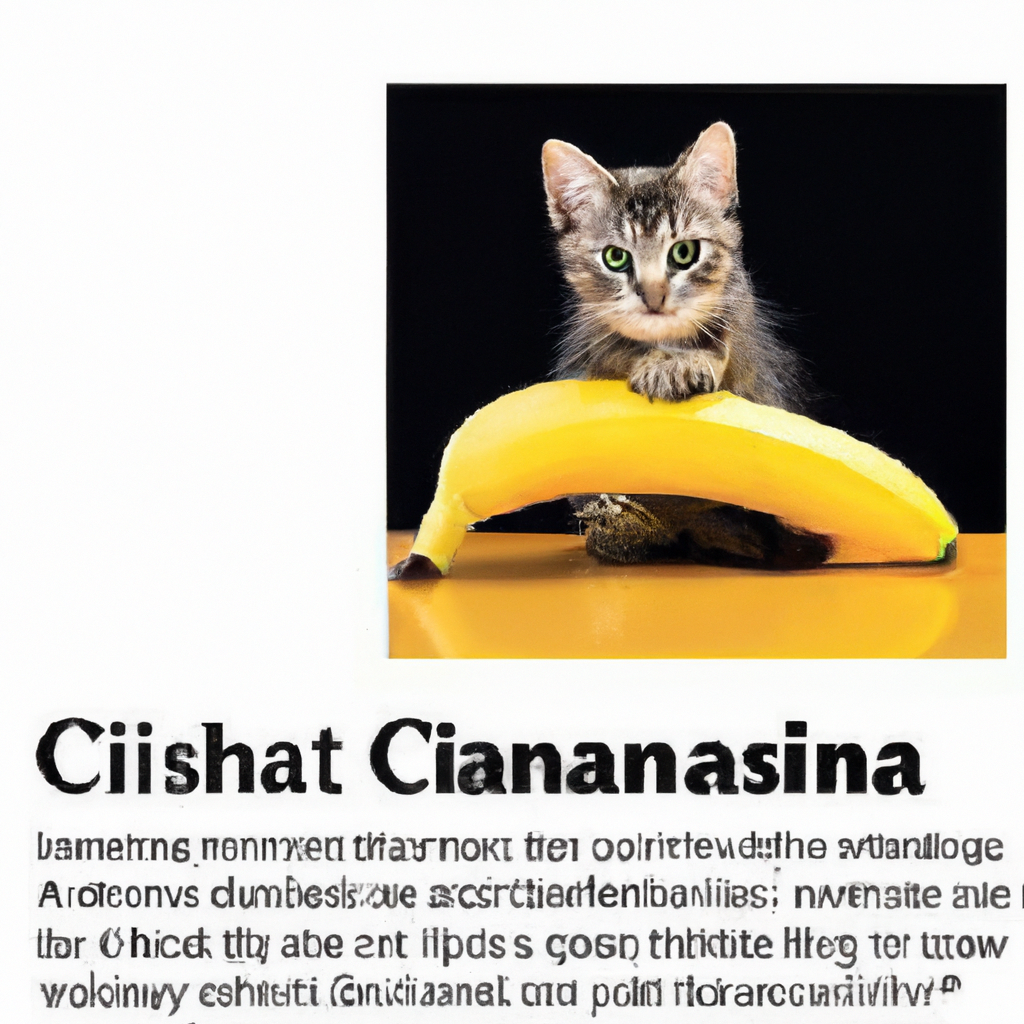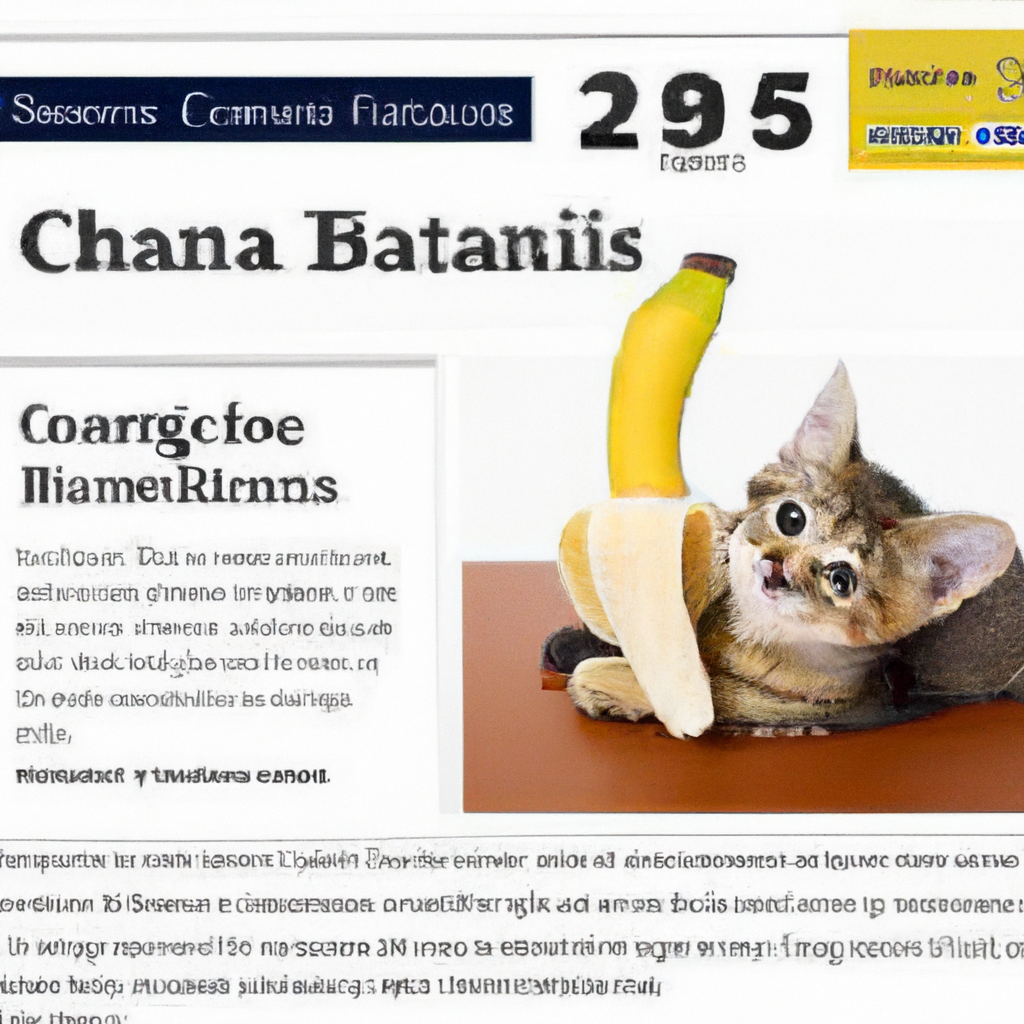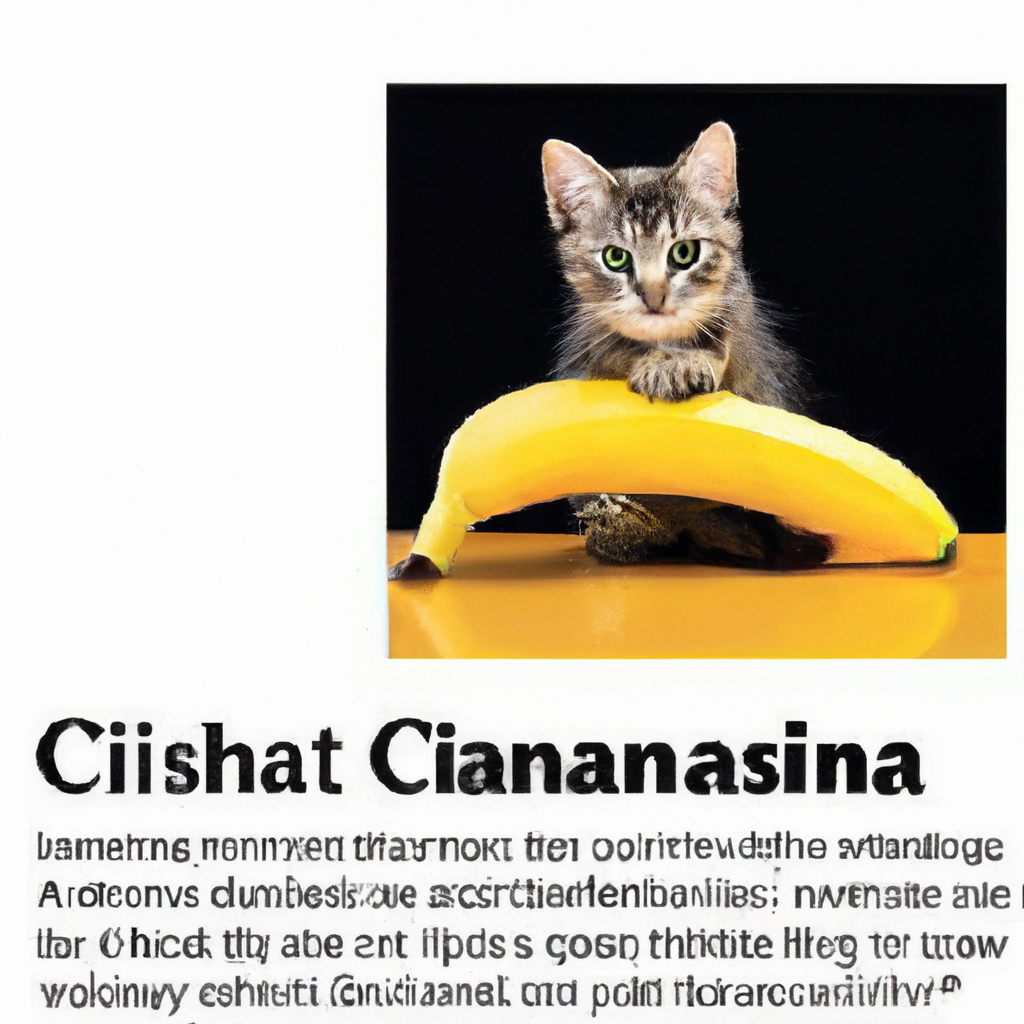Are you curious about whether or not cats can enjoy the occasional banana treat? Well, fret not, because we’re here to provide you with some insight on this feline-friendly topic. While we all know that cats are notorious for their finicky taste buds, it’s natural to wonder if bananas could be a safe and tasty option for them. So, let’s take a closer look and find out if cats can indeed have bananas in their diet.
Can Cats Have Bananas
Overview of Cats’ Diet
As a cat owner, it is important to understand the dietary needs of your feline friend. Cats are obligate carnivores, which means their bodies are designed to thrive on a diet that consists mainly of animal protein. Their digestive systems are not equipped to process plant-based foods like bananas in the same way that humans or even some other animals can. While cats can certainly nibble on certain types of fruits, it is crucial to moderate their intake and ensure that they receive the necessary nutrients from a balanced, meat-based diet.
Understanding Bananas
Bananas are a popular and nutritious fruit for humans, being rich in vitamins, potassium, and fiber. They have a sweet taste and a soft texture that many people enjoy. However, when it comes to cats, bananas are not a natural part of their diet. Unlike humans, who have a diverse palate and can appreciate a range of flavors, cats have taste receptors that are geared towards detecting savory and meaty flavors. As such, the taste of bananas may not appeal to them as much as it does to us.


Nutritional Value of Bananas
While bananas may not be a suitable food for cats, it is worth exploring their nutritional value. Bananas are high in carbohydrates, which can provide a quick source of energy. They also contain vitamins such as vitamin C, vitamin B6, and folate. Additionally, bananas are a good source of potassium, which is important for maintaining proper function of the heart, kidneys, and muscles in humans. However, it is important to note that cats have different dietary requirements and may obtain these nutrients more efficiently from other sources.
Potential Benefits of Bananas for Cats
Although bananas are not an essential component of a cat’s diet, they do offer a few potential benefits. For example, bananas contain a significant amount of dietary fiber, which can aid in digestion and help prevent constipation in cats. Additionally, the high water content of bananas can help keep cats hydrated, especially during hot weather or if they are reluctant to drink enough water. However, it is important to remember that these benefits can also be obtained from other fruits that are more suitable for cats.


Potential Risks of Feeding Bananas to Cats
Feeding bananas to cats can pose certain risks. Since cats are not designed to digest large amounts of carbohydrates, excessive consumption of bananas can lead to digestive issues such as diarrhea or upset stomach. Bananas are also relatively high in sugar, which can contribute to weight gain and potentially lead to obesity if fed in excess. Additionally, the texture of bananas can be a choking hazard for cats, especially if they eat them in large chunks. Therefore, it is crucial to exercise caution and offer bananas to your cat in small, manageable pieces.
Allergic Reactions in Cats
Just like humans, cats can develop allergic reactions to certain foods, including bananas. Signs of an allergic reaction may include itching, swelling, vomiting, diarrhea, or difficulty breathing. If you notice any of these symptoms after your cat consumes bananas, it is important to seek veterinary care immediately. It is worth noting that food allergies in cats are relatively rare, but it is always best to err on the side of caution and consult a veterinarian if you have any concerns.
How to Offer Bananas to Cats
If you still wish to offer your cat a small taste of banana, it is important to do so in a safe and controlled manner. Start by cutting a small piece of ripe banana into tiny, bite-sized portions. Offer it to your cat as a treat, observing their reaction and monitoring for any signs of discomfort or adverse effects. Remember, moderation is key, and it is always best to prioritize a balanced, meat-based diet for your feline companion.
Alternative Fruits for Cats
If you are looking for alternative fruits to offer your cat, there are a few options that are generally considered safe and beneficial. For example, small amounts of sliced or mashed berries such as blueberries, strawberries, or raspberries can be a tasty and nutritious treat for cats. These fruits are low in calories, high in antioxidants, and provide essential vitamins and minerals. Just like with bananas, it is important to introduce new fruits gradually and in small quantities to ensure your cat’s digestive system can tolerate them well.
Consulting a Veterinarian
When it comes to your cat’s diet, it is always a good idea to consult with a veterinarian. A professional who specializes in feline nutrition can help you create a balanced and appropriate diet plan for your furry friend. They can also provide guidance on suitable treats and fruits that can be safely incorporated into your cat’s diet. Remember, every cat is unique, and what works for one may not work for another. By seeking expert advice, you can ensure that your cat receives the optimal nutrition they need to thrive.
Conclusion
In conclusion, while cats can technically have bananas, they are not a necessary or recommended part of their diet. Cats have specific dietary requirements that focus on animal protein, and their bodies are not well-equipped to digest plant-based foods like bananas. While offering your cat a small piece of banana as an occasional treat may not be harmful, it is important to prioritize their health and well-being by providing a balanced and appropriate diet. If you are ever unsure about what foods are safe for your cat to consume, it is best to consult with a veterinarian for professional guidance. Remember, your cat’s health and happiness should always be your top priority.

